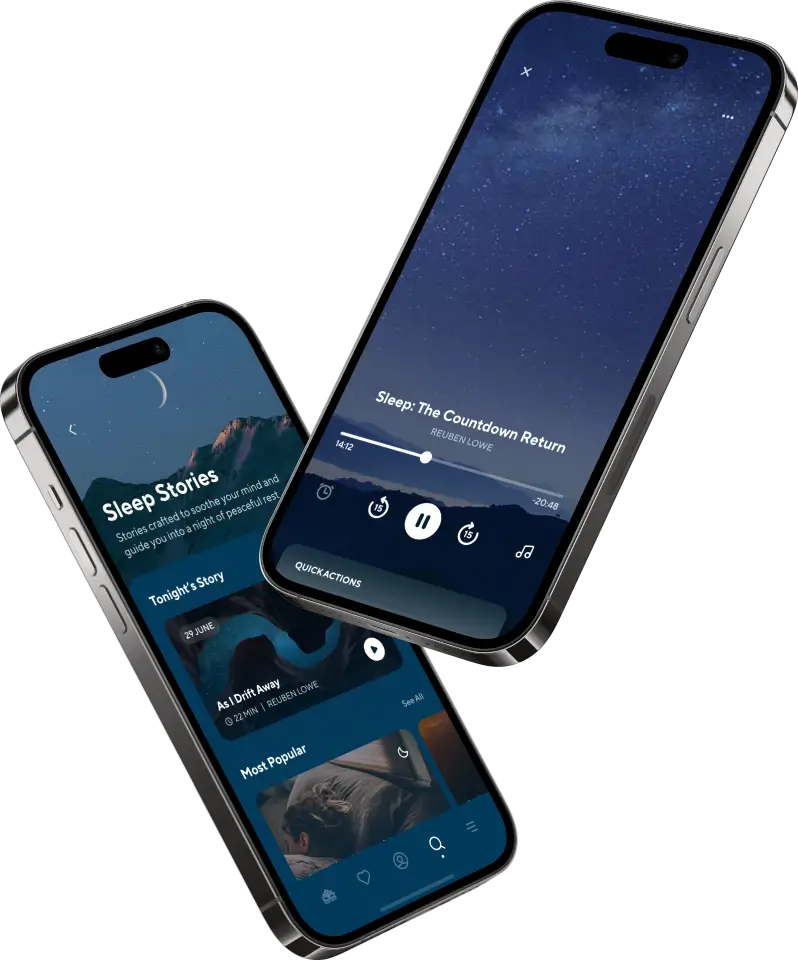In today’s fast-paced world, mindfulness often feels like a luxury instead of a necessity. The demands of work, family, and personal obligations can leave little room for self-care, let alone a structured meditation routine. But what if we told you that even two minutes of mindfulness amid a busy day could transform your mental well-being? In a recent discussion on the Conscious Action Podcast, host Brian Bernamman explores how micro-meditation moments - brief, intentional practices - can create profound shifts in stress management, productivity, and overall health.
This article delves into the highlights of Bernman's insights, offering practical strategies to incorporate mindfulness into even the busiest schedules.
Why Micro-Meditations Matter
Meditation is often associated with lengthy, highly regimented practices. For many, this perception becomes a deterrent - "I don’t have time" is one of the most common reasons people give for not meditating. Bernman challenges this myth, emphasizing that meditation is not about the duration but the quality of presence and awareness.
Even a single moment of mindfulness can offer benefits, such as:
- Reducing stress by calming the nervous system.
- Improving focus and mental clarity.
- Fostering emotional regulation and resilience.
These micro-moments act as anchors amid the chaos of modern life, helping you reconnect with your breath, your senses, and your inner balance.
The Science Behind Micro-Meditations
Bernman highlights how brief moments of mindfulness can shift the body from a stress-focused state (sympathetic nervous system activation) to a calmer, more restorative state (parasympathetic activation). This transition reduces the stress hormone cortisol and allows your body to reset. Over time, these practices can help rewire your brain for greater resilience, focus, and emotional equilibrium.
The magic of micro-meditation lies in its accessibility: you don’t need an hour-long session or a dedicated space. Moments of awareness and stillness - whether it’s taking three deep breaths before a meal or pausing during your commute - can be woven seamlessly into your day.
Practical Strategies to Incorporate 2-Minute Meditations
If you’re ready to embrace mindfulness but feel overwhelmed by the thought of adding "one more thing" to your schedule, start small. Below are Bernman’s actionable strategies to integrate micro-meditations into your daily routine:
1. Breathe with Intention
Your breath is a powerful tool for mindfulness. Without even closing your eyes, you can bring awareness to your breath while sitting at your desk or during a meeting. Try this simple technique:
- Inhale for a count of 4.
- Exhale for a count of 6 or 8.
- Repeat this cycle two to three times.
2. Pause Before Meals
Before eating, take a moment to slow down:
- Take three deep breaths.
- Notice the aroma, texture, and appearance of your food.
- Express gratitude for your meal, connecting to the present moment.
3. Create a Mindful Commute
Whether you’re in gridlock traffic or waiting for a train, use these moments to practice mindfulness:
- Instead of scrolling on your phone, focus on your breathing or the sensations around you.
- Observe the sounds, sights, or even the rhythm of your steps if you’re walking.
4. Transform Waiting Times into Mindful Opportunities
Waiting in line at the grocery store or a coffee shop? Instead of checking your watch or phone:
- Take a deep breath and notice your surroundings.
- Ground yourself by feeling the pressure of your feet on the floor or the texture of an object you’re holding.
5. Use Touch as a Grounding Tool
Gentle physical touch can help bring you back to the present:
- Place a hand on your heart or give yourself a light massage on your hands or shoulders.
- Focus on the warmth or sensation for a minute.
6. Gratitude in a Minute
Cultivate gratitude with a simple practice:
- Close your eyes (if comfortable) and think of one thing you’re grateful for.
- Place your hand on your heart and allow that feeling to linger.
7. Engage Your Senses
Fully immersing in your senses can ground you in the here and now:
- Focus on the taste of a sip of tea, the sound of birds outside, or the texture of your clothing.
- Use sound meditations, such as listening to calming music or nature sounds.
Breaking the "All-or-Nothing" Mindset
One of Bernman’s key messages is to let go of perfectionism when approaching mindfulness. Many people feel that if they can’t dedicate 30 minutes or more to meditation, it’s not worth doing. But Bernman reminds us: Presence matters more than perfection. Even one mindful breath can create a ripple effect in your day.
For those working in high-stress environments, micro-meditations can also inspire cultural shifts. Bernman shares an example of a client who started by meditating for one minute in private, such as in a restroom. Over time, her co-workers recognized her practice, and she eventually felt comfortable meditating at her desk. Small, conscious actions can normalize mindfulness in shared spaces.
The Power of Starting Small
The hardest part of any new habit is starting. But with micro-meditations, the barriers are minimal. You don’t need special equipment, a serene environment, or a long block of time. All you need is the willingness to pause, breathe, and connect.
Remember: calmness, balance, and relaxation aren’t external goals to chase. They already exist within you. By making room for even a few moments of stillness each day, you’re giving these qualities the opportunity to emerge and thrive.
Key Takeaways
- Meditation is about presence, not duration. Even one or two minutes of mindfulness can provide significant benefits.
- Start with your breath. Simple breathing exercises, such as counting inhalations and exhalations, are easy to practice anytime, anywhere.
- Incorporate mindfulness into daily activities. Use transitions (e.g., before meals, during commutes, or while waiting) as opportunities for micro-meditations.
- Engage your senses. Focus on touch, sound, or taste to ground yourself in the present moment.
- Gratitude rewires your brain. Spend a moment reflecting on what you’re thankful for to shift your mindset from scarcity to abundance.
- Let go of perfectionism. Mindfulness doesn’t require an ideal setting or extended time commitment - small, consistent actions matter more.
Final Thoughts
Micro-meditations offer a powerful reminder that mindfulness isn’t reserved for those with ample free time or special meditation spaces. It’s a practice that belongs to everyone, regardless of how busy life gets. By incorporating brief moments of stillness into your routine, you can cultivate a sense of presence, reduce stress, and build resilience - one conscious breath at a time.
Whether you’re a working professional, a student, or simply someone seeking more balance, the key is to start where you are. These two-minute practices may seem small, but their cumulative impact can be transformative.
Take a moment today - just two minutes - to pause, breathe, and reconnect with yourself. You may be surprised by how powerful those 120 seconds can be.
Source: "2-Minute Meditation Practices for Busy Lives | Quick Mindfulness & Stress Relief - Episode 221" - Conscious Action by Brian Berneman, YouTube, Aug 19, 2025 - https://www.youtube.com/watch?v=I8-xrtY0hzY
Use: Embedded for reference. Brief quotes used for commentary/review.






